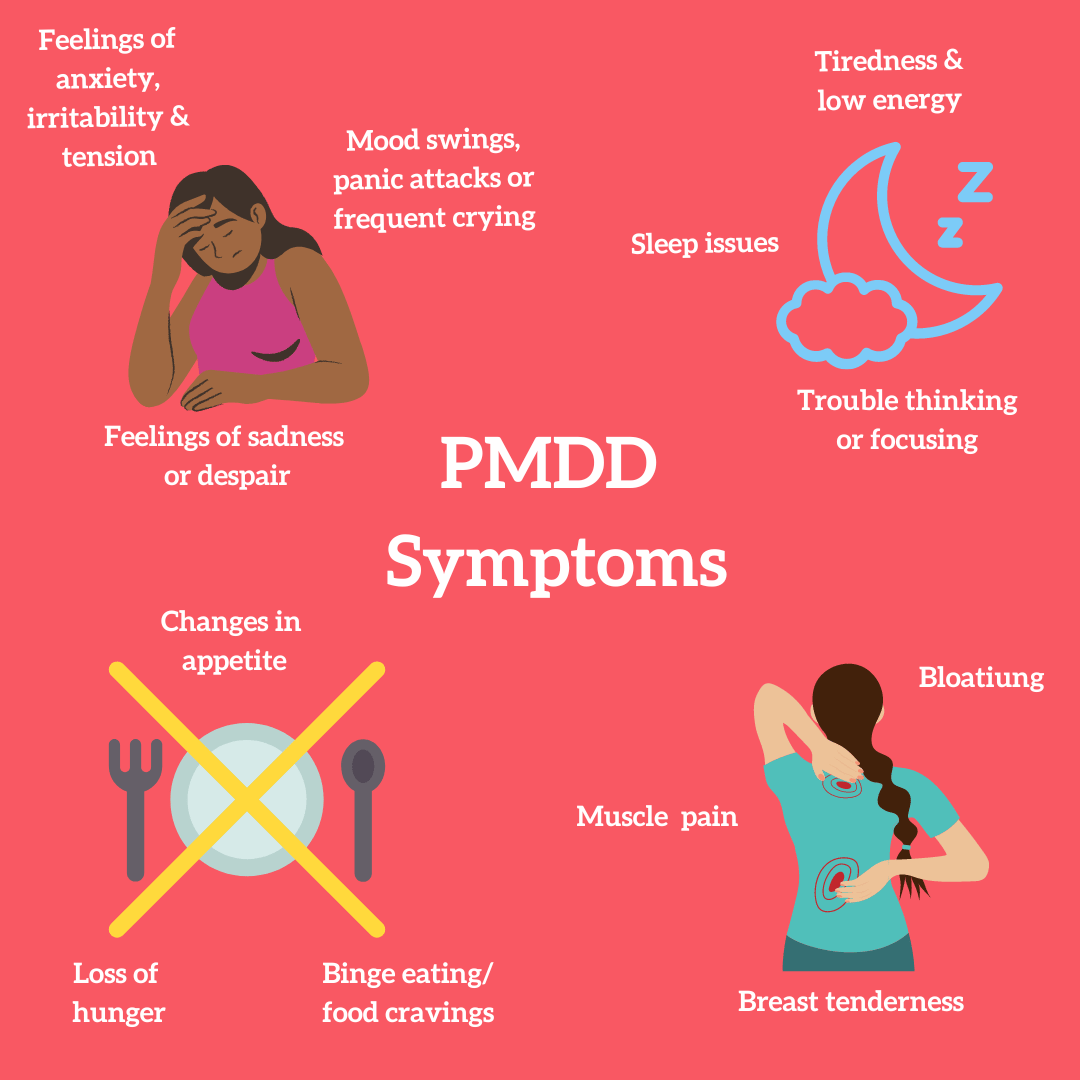What is PMDD?

Premenstrual dysphoric disorder (PMDD) is a severe form of premenstrual syndrome (PMS). The symptoms of PMDD usually show up the week before your period starts and last until a few days after it begins. Most of the time, they’re severe and exhausting, and they can get in the way of your daily life.
Many women experience symptoms of PMS, but if you have PMDD, these symptoms are more extreme and can have a serious impact on your life. PMDD can affect work, social life, relationships, and in some cases, it can also lead to suicidal thoughts.
Symptoms
The symptoms of PMDD vary from person to person, but these are some of the most common emotional and physical ones:
- mood swings
- lack of energy
- lack of motivation
- suicidal feelings
- feeling angry or irritable
- anxiety
- feeling overwhelmed or out of control
- difficulty concentrating
- breast tenderness or swelling
- pain in your muscles and joints
- headaches
- bloating
- changes in your appetite, such as overeating or having specific food cravings
- sleep problems
- increased anger or conflict with people around you
As PMDD is linked to your menstrual cycle, you will likely not experience symptoms if you are pregnant, but the symptoms can return when you ovulate again.
Treatment
There are a number of different treatments for PMDD, but it is important to discuss these with your doctor or healthcare professional. The treatments will depend on how bad your PMDD symptoms are, your personal preferences.
Medical treatments
Medical treatments that your GP or healthcare profession might prescribe include:
- SSRIs (selective serotonin reuptake inhibitor)
- Combined oral contraceptives
- Talking therapy and counselling
- Painkillers or anti-inflammatory drugs
- GnRH analogue injections
- Surgery
Non medical treatments
When you speak to your doctor, they may suggest some lifestyle changes which could improve your physical and mental health. This may help to reduce your PMDD symptoms to a manageable level without the need for further treatment. Or it may be something to try alongside another treatment.
Possible suggestions they might make are:
- Daily exercise
- Changes in your diet - such as reducing caffeine and alcohol
- Setting a regular sleep routine
- Trying to reduce your stress levels
- if you smoke, trying to cut down or stop entirely
These suggestions will be different for everyone, as the changes you feel able to make will depend on your personal circumstances and experiences.
For further information and support please visit the NHS and Mind websites.




Comments